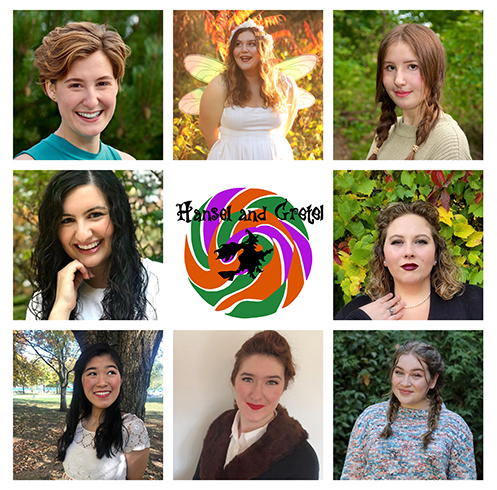By Valérie Filloux
I felt nervous entering into my final year at Northwestern with no secured future for my art form. The possibility of performing opera during a pandemic was and is still shrouded in uncertainty, as the issue of singing in person during this time often seems to be an insurmountable challenge. With great challenge comes great innovation, however, and student-run group Opera Projects for University Singers (OPUS) decided to look at opera from a different angle—a podcast production!
Founded in 2015 and formerly known as Chamber Opera Initiative, OPUS is currently led by undergraduate voice and opera majors Renata Herrera and Nick Lin. In mid-December, the group premiered its digital production of Humperdinck’s Hansel and Gretel, created from the homes of several Bienen School students. The performance is structured in the format of a digital audiobook, with additional episodes exploring the production process and OPUS’s nonprofit partnership with A Just Harvest. All content is currently available on Spotify and YouTube.
Director McKenna Troy suggests that listeners treat OPUS’s version of Hansel and Gretel as a traditional audiobook. “[It is] best enjoyed while knitting or going on a walk.”
While the opera reflects a lighthearted holiday theme, it also highlights the more serious truths of food insecurity and poverty. Producer Annaliese Biesterfeld explains that the production aims to address these themes through a partnership with nonprofit organization A Just Harvest—an organization that seeks to fight poverty and hunger in the Rogers Park and greater Chicago community by providing daily meals and cultivating the community at large. As part of the Hansel and Gretel podcast episodes, OPUS encouraged donations to A Just Harvest.
Biesterfeld and Troy also highlighted one of the most unique points of this opera: aural storytelling achieved without opera’s typical accompanying visual elements. This format—introduced due to COVID-19 restrictions—led to the creation of a unique sound world with no requirement that singers project sound into a large space. While original plans for the performance included a walk-through set on the campus’s lakefill, plans soon pivoted to move the production to a fully digital format as pandemic practices evolved.
Since performances were created from each musician’s home or practice room, Troy highlighted that the singers were given the agency and ability to talk or shout while adding in other audio effects, such as gasps, yawns, and “any other sounds you can think of.” These sounds, made partially by the singers and partially through audio engineering, reflect a small part of the complicated process of audio production.
In addition to added sound effects, the vocal parts, piano reduction, and individual orchestra tracks were put together in various stages and combinations to serve as guides for the recording process, and to create the final product.
Congratulations to OPUS and all involved in this production for their creativity, commitment, and flexible artistry!
